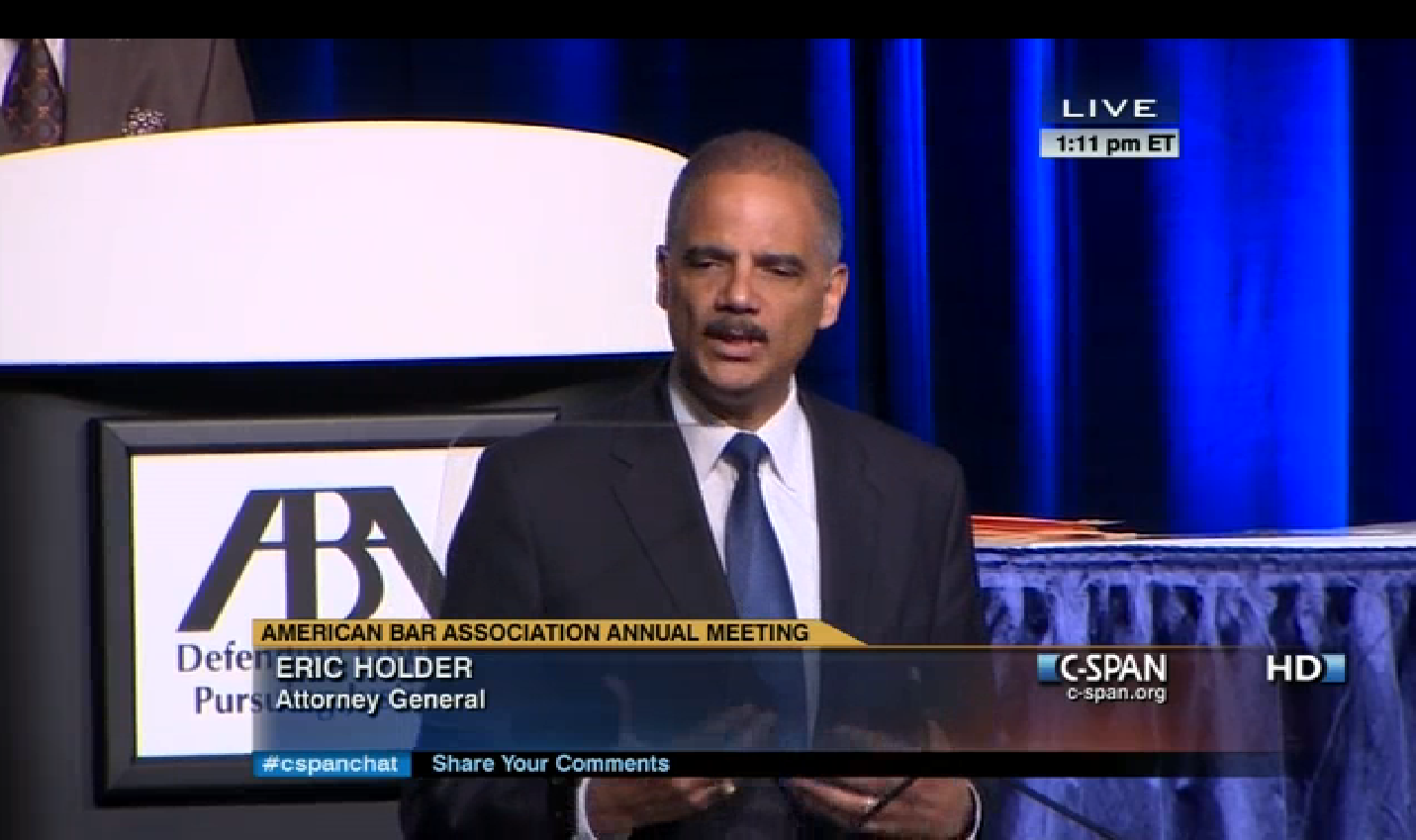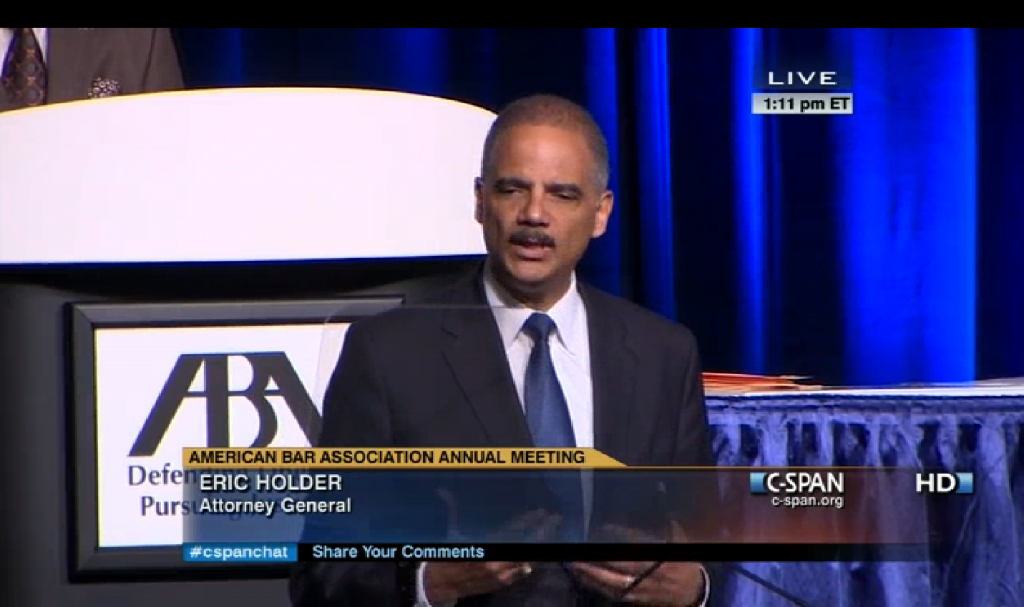New Sentencing Policy a Boon to Criminal Justice System Reform
Building on top of a number of aggressive efforts to reinforce fundamental civil rights, Attorney General Eric Holder announced yesterday major changes to the federal government’s criminal justice system. The changes are aimed at setting the foundation needed to reduce the high rate of recidivism and to address practices that disproportionately impact racial and ethnic minorities.
Speaking before the American Bar Association’s annual gathering in San Francisco, Holder announced that the Justice Department will change the way it carries out drug sentences for low-level, nonviolent offenders, with the goal of mitigating the harmful impact of mandatory minimum sentences for such crimes. Today,we praised the announcement, saying that the Attorney General’s policy has the full support of the organization.
“A ‘one-size-fits-all’ punishment for drug-related offenses has resulted in wasteful spending on overcrowded jails that house too many individuals who pose little or no safety risk to our communities,” said Jennifer Ng’andu, Director of Civil Rights and Health Policy at NCLR, in a statement. “We’re pleased to see Attorney General Holder taking much-needed steps to revamp a criminal justice system that currently puts first-time offenders on the permanent track to prison. The nation’s justice system should offer alternatives to incarceration, emphasize rehabilitation, and establish cost-effective strategies for dealing with low-level crimes.”
Watch the speech below:
There has been an increased level of scrutiny on our criminal justice system and how its administration negatively impacts minority offenders. According to the Sentencing Project, “despite equal rates of drug use proportionate to their populations, Hispanics are twice as likely as Whites, and equally as likely as Blacks, to be sent to state prison for a drug offense.” With the new policy, prosecutors will be able to consider other factors when charging some defendants, such as their conduct or criminal history, or even dismiss the charges altogether.
“Too many of our young people become caught up in the criminal justice system because our first action is to jail and not to rehabilitate. The goal of our justice system should be to give people a chance to turn their lives around—not to ensnare low-level offenders in a system that will create tremendous obstacles for their future, whether it be finding housing or a job,” said Ng’andu. “Our law enforcement resources are better spent prosecuting dangerous criminals.”
The announcement was a positive step forward, but there remains much work to be done to effectively reform our criminal justice system. We look forward to working with the administration on this effort.




